Despite their small size, house flies can become a major concern when they infest your home. These winged nuisances are more than just an annoyance; they’re capable of carrying diseases that threaten your health. Therefore, controlling these pests becomes paramount. However, many are rightly hesitant about using harsh chemicals around their living spaces, especially those with children or pets. This post will provide you with natural, effective alternatives to reclaim your peace and health from these troublesome invaders.
The Biology Of House Flies: Know Your Enemy
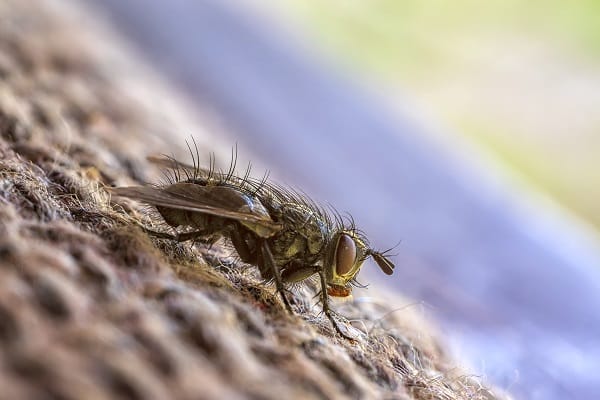
House flies, scientifically known as Musca domestica, are creatures of habit, attracted to human habitations in search of food and breeding grounds. Their lifecycle consists of four stages: egg, larva, pupa, and adult. They find decaying organic matter particularly inviting for laying their eggs, making compost bins and garbage cans prime real estate for these pests. Understanding their behavior and preferences is a crucial step in forming your strategy to get rid of them.
House flies are not just a nuisance but also a significant health hazard. Due to their feeding and breeding habits, they come into contact with a wide range of pathogens, which they then spread to your food and surfaces. Diseases like cholera, dysentery, and food poisoning can all be linked to flies. So, while they might seem harmless beyond their incessant buzzing, the threat they pose is very real, and addressing a fly infestation becomes as much a matter of health as it is of comfort.
Importance Of Prevention: Keep Flies At Bay
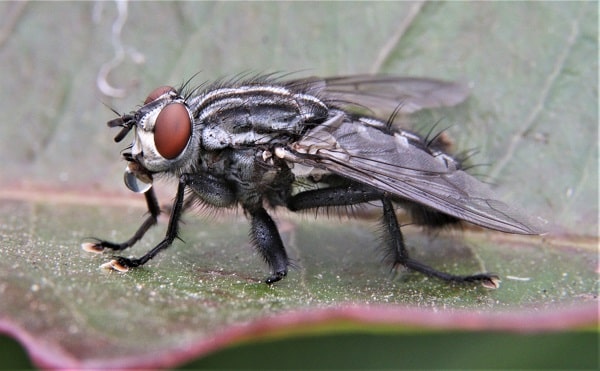
Preventing a fly infestation is infinitely easier and less time-consuming than trying to eliminate one. Maintaining cleanliness in and around your home can significantly reduce the chances of an infestation. This includes regular cleaning of food spills and not leaving food uncovered, especially during the warmer months. Trash cans should be sealed properly, and garbage should be disposed of regularly to avoid attracting flies.
Apart from cleanliness, sealing possible entry points for flies can also help in prevention. Ensure that windows and doors are well-fitted and you repair any cracks in the walls or ceilings. Use fine-mesh screens for windows and doors for added protection. Remember, flies can reproduce rapidly, so even a few finding their way into your home can lead to a full-blown infestation before you know it.
Use Of Natural Repellents: The Power Of Aromas
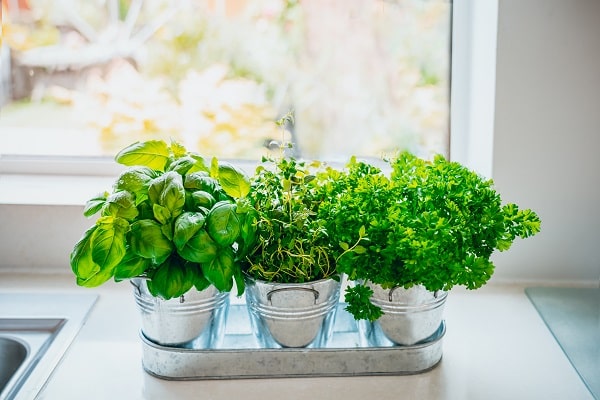
Certain plants act as natural fly repellents due to their strong aromas, which flies find repugnant. Herbs such as basil, lavender, mint, and lemongrass are particularly effective. These can be grown in pots around the house or planted in your garden. The added bonus, of course, is that they also enhance your cooking and add beauty to your home or garden.
Besides, many of these herbs can also be used to make natural fly-repellent sprays. Simply steeping the leaves in boiling water, straining the liquid, and adding a little dish soap can make an effective, eco-friendly fly spray. So, these plants offer a two-fold benefit: their very presence deters flies, and you can use them to concoct natural fly sprays.
DIY Fly Traps: Creative And Effective Solutions
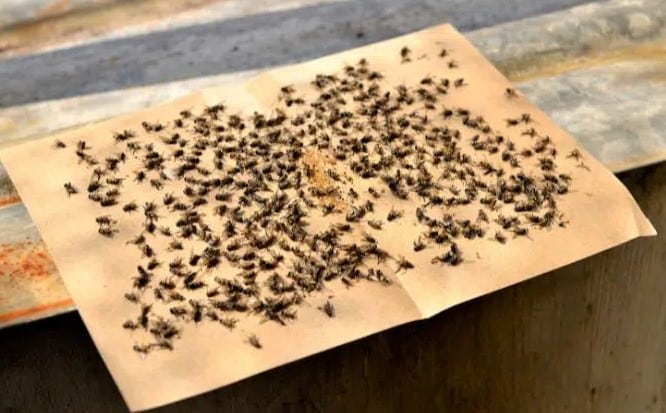
Sometimes, despite your best efforts, flies manage to invade your home. This is where DIY fly traps come in handy. You can make a simple yet effective trap using a plastic bottle, some sugar water or fruit juice, and a bit of dish soap. The flies are attracted to the sweet scent, enter the bottle, and are then trapped by the soap in the water.
You can also make flypaper at home using strips of brown paper coated in a mixture of sugar, honey, and water. Once dry, you can hang them around the house. The sticky sweet surface attracts flies and traps them. While these methods are slightly more reactive than preventative, they’re a great natural response to a budding infestation.
Utilizing Essential Oils: Nature’s Powerful Tool

Another powerful natural tool against house flies is essential oils. Certain oils, such as eucalyptus, peppermint, and citronella, are especially detested by flies. Mixing a few drops of these oils with water in a spray bottle makes a potent fly-repellent spray that can be used around the house.
Alternatively, you can use essential oils in a diffuser to spread the scent throughout your home or soak cotton balls in the oils and leave them in fly-prone areas. Apart from repelling flies, these oils also have the added benefit of making your home smell wonderful. It’s a win-win solution!
Outdoor Strategies: Safeguarding The Perimeter

Keeping your outdoor spaces clean and maintained is also crucial in preventing fly infestations. Flies are attracted to standing water and organic waste, so ensure there are no such attractants in your yard. Dispose of garden waste properly and avoid leaving it in piles around the garden. If you have a compost pile, ensure it’s well-managed and covered.
In addition to this, consider planting fly-repelling plants in your garden or around your yard. As mentioned earlier, plants like basil, mint, lavender, and lemongrass are excellent choices. These not only deter flies but also beautify your outdoor spaces and can provide useful herbs for your kitchen.
Natural Fly Sprays: Chemical-Free Solutions
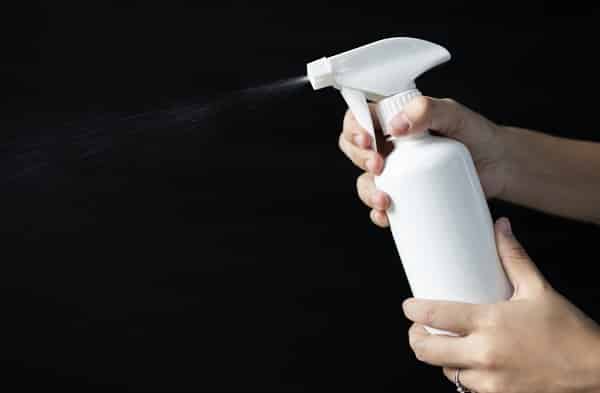
You can create effective fly sprays at home using natural ingredients. One recipe involves mixing water, dish soap, and an essential oil such as peppermint or lemongrass. The soapy water entraps and kills the flies, while the essential oil’s scent repels them. Another option is a mixture of apple cider vinegar, witch hazel, and eucalyptus oil.
When using these sprays, focus on areas where you’ve seen a lot of fly activity. However, always test the spray on a small, hidden area first to ensure it doesn’t discolor or damage the surface. Also, while these sprays are made from natural ingredients, they should still be used responsibly and kept out of reach of children and pets.
Use Of Fly Predators: Biological Control
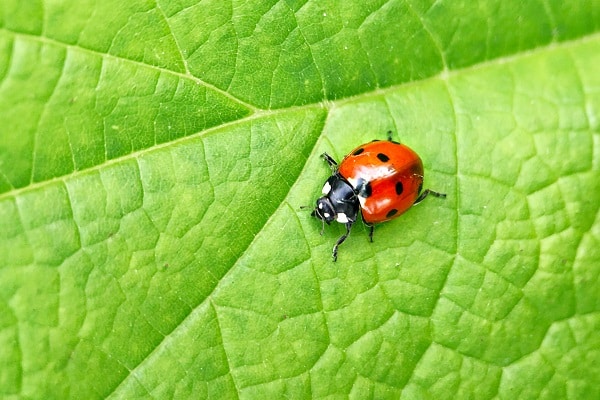
Nature has its own way of controlling pests, like house flies. Certain animals and insects are natural predators of flies and can help in managing fly populations. Creatures like spiders, frogs, and certain types of birds feed on flies. By creating a friendly environment for these creatures in your garden, you can enlist their help in your battle against flies.
Similarly, insects like ladybugs and praying mantises are also known to feed on flies. Another biological control method involves introducing parasitic wasps, which are commercially available. These wasps lay their eggs inside fly pupae, killing the developing flies. However, always research and consider potential impacts on local ecosystems before introducing new species.
Adopting A Holistic Approach: Lifestyle Changes

Achieving a fly-free home requires more than just one-time measures; it needs lifestyle changes. Regular cleaning, proper food storage, and prompt repair of any gaps or cracks in your home’s exterior are just a few practices to adopt. These not only help in preventing fly infestations but also contribute to a healthier, cleaner living environment.
Moreover, educate yourself and your family about the risks associated with house flies and the importance of preventive measures. Making these practices a part of your routine will yield long-term results and ensure your home stays fly-free. Remember, preventing an infestation is easier than getting rid of one!
Common Misconceptions About House Flies
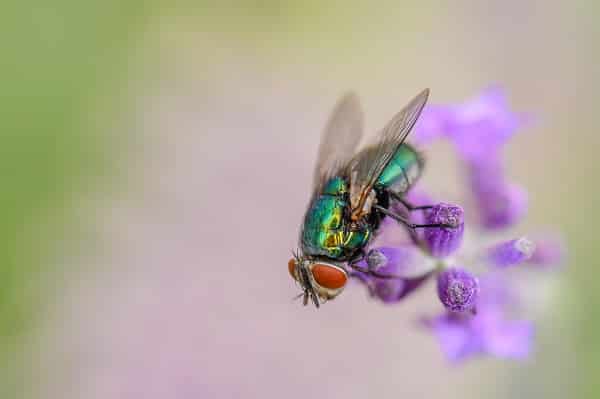
Unfortunately, there are several myths associated with house flies and their control methods. One such myth is that house flies live for only a couple of days. In reality, a house fly can live up to a month under favorable conditions. This makes it even more crucial to prevent an infestation, as one fly can quickly lead to many.
Another common misconception is that all natural remedies work. While many are effective, some, like ultrasonic devices and bug zappers, are not. Understanding the difference between fact and fiction is essential in effectively dealing with a fly problem. Always rely on scientifically-backed information and proven strategies.
Take Steps To Get Rid Of House Flies!
House flies can pose a significant annoyance and health hazard, but with the right knowledge and methods, you can reclaim your home from these pests. The key lies in understanding the problem, taking preventive measures, and using effective natural solutions to tackle any infestations.
While it may take a little time and effort, the peace of mind of living in a fly-free home is well worth it. So, equip yourself with these tips, roll up your sleeves, and show those flies the door.


